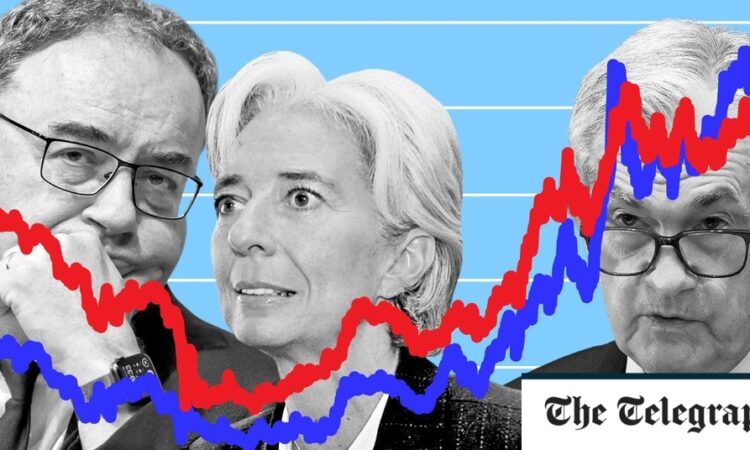
His argument runs that the financial system has become entirely geared around low interest rates after almost 15 years of cheap money in the post-2008 era. Many of the business models, investment ideas and hedging strategies that underpin the economy will now come unstuck as interest rates stay higher for longer.
There have been tremors already: pension funds were forced to rapidly sell bonds in the wake of the 2022 mini-Budget after liability-driven investment (LDI) strategies blew up.
“Everybody’s portfolio is geared up for a completely different structure of interest rates. You tighten very rapidly like this, and bad things happen,” says Mortimer-Lee, a Brit who is based in New York.
In his view, the original sin is that central banks went too far with quantitative easing (QE) during the pandemic.
The Bank of England massively ramped up its purchases of government bonds, taking its balance sheet from £435bn to £875bn by the end of 2021. The European Central Bank and US Federal Reserve also pumped out extraordinary stimulus.
“These guys went nuts over Covid,” Mortimer-Lee says. “Covid was temporary, but they did things with their balance sheets that were permanent. They did much much more for Covid than they did in the much more severe and long-lasting wake of the global financial crisis.
“Rates to zero, buy every bond that the Government issues – that is why the government deficit in the UK and the US is outrageously high, because money was free. It is like giving a kid a credit card and saying ‘spend as much as you want’. And that is what the governments did.”
Now, the debt is coming due.
The Bank of England’s argument is that much of what we now know is only visible with hindsight.
Ben Broadbent, a deputy governor at the Bank, has argued that officials feared that the end of the Covid furlough scheme would lead to a surge in unemployment.
The Monetary Policy Committee waited until it was clear there would be no jump in redundancies before tightening policy.
By that time inflation was already rising rapidly and the Bank was forced to raise interest rates extremely rapidly to curb price rises: taking rates from 0.1pc in December 2021 to 5.25pc today.
With similar moves from the Fed and the European Central Bank, the result can only be ugly, Mortimer-Lee says.
American businesses face a “nightmare” next year as cheap debt expires and has to be refinanced at higher costs.
“The housing market is a disaster waiting to happen,” he says, arguing that households borrowed as if low rates were here to stay.
If he is right, why have we seen only a limited impact from spiralling borrowing costs so far?






